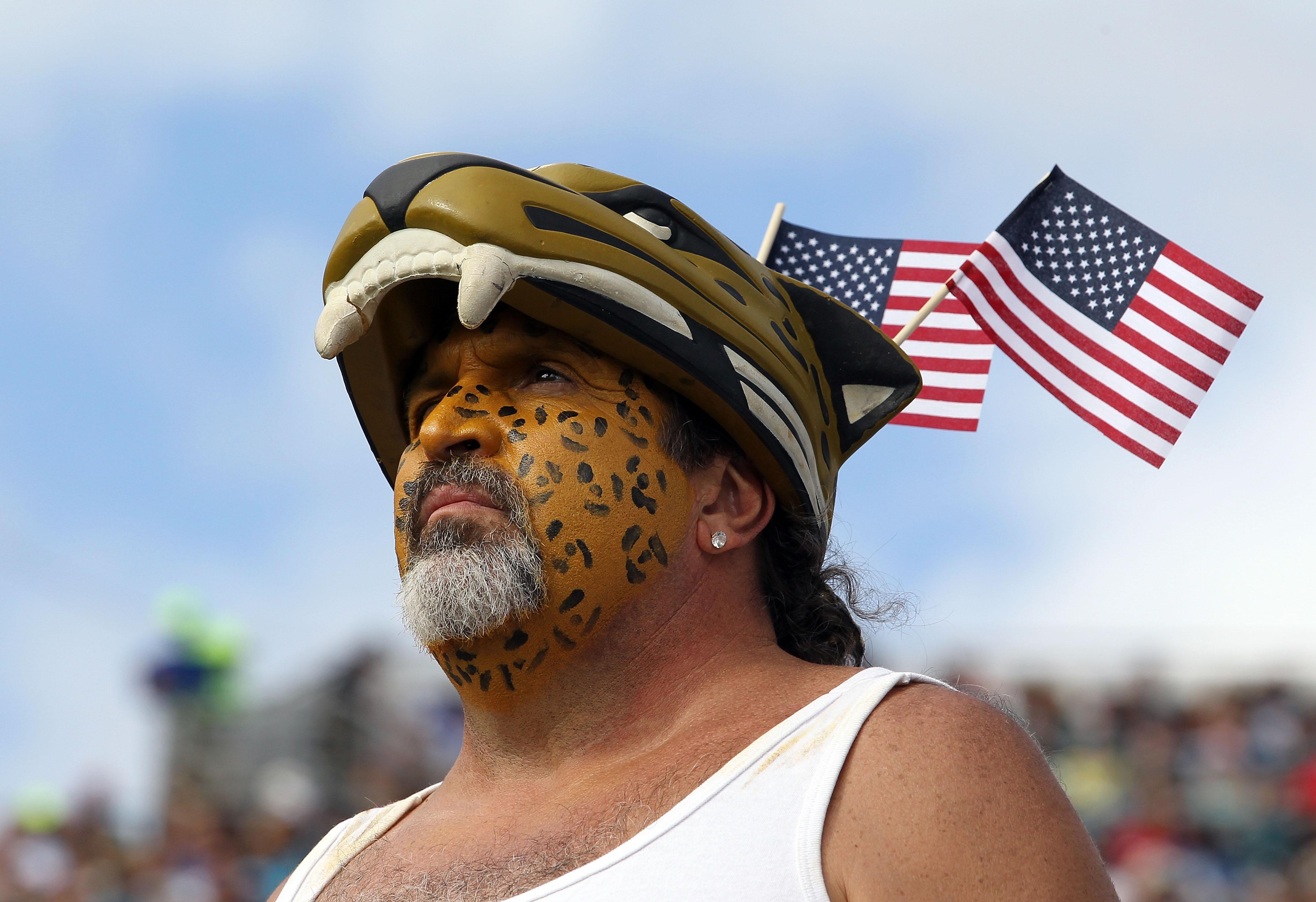Mustaches and financiers: I think Luke was right, spectator fatigue is setting in. It’s amazing that it always hits around the three-quarters mark of the season, no matter the sport or how long that season might be. In baseball it’s the dog days of August; in basketball and hockey it’s the annual “it’s February, it’s cold, it’s dark, nothing’s on TV, and there are still two months of this crap before the playoffs” realization. And in the NFL it’s the lull between Black Friday and college bowls. Half the league’s teams have no realistic shot at the playoffs, and the Andrew Luck stakes are all but decided. For many teams, it’s time to just play out the string and try not to get crippled.
So if you tune in for this week’s joyless Tampa Bay-Jacksonville showdown (tagline: “Because We Can’t Just Not Play It”), you might notice that, when divorced from big-picture relevance, the game play is relatively staid. They’re going to throw, they’re going to run, there will be blocking and kicking and flags. For all football’s violence and outward rowdiness, the game itself is remarkably predictable. The rules make it so, limiting just about any attempt at creativity or improvisation. You can’t put too many men on the line of scrimmage. You can’t get a running start. You can touch the guy guarding you after 4 yards, but not 5. You can’t go downfield if your jersey number is between 50 and 79. If you want to have a lineman catch a pass, you need to announce it to the entire stadium beforehand. All these rules exist to enforce a certain orthodoxy of play. The NFL as McDonald’s—you know exactly what you’re going to get.
It’s the way the sport was designed, and the reason the NFL rulebook is 113 pages. James Naismith’s original rules for basketball were two typewritten pages, pinned to a gym bulletin board. (Today’s NBA rulebook is about half the length of the NFL’s.) Basketball! Now there’s a sport that encourages—even demands—spontaneity from its practitioners. It’s a wide-open game, in which the only rule a ballhandler must abide by as he works toward his goal is constant motion. If blacktop hoops is avant-garde improv theater, then American football is Cats dutifully touring the Midwest. You get tickets because you know you’ll be entertained, but don’t expect to witness something you’ve never seen before.
Welcome to the machine. The NFL is McDonald’s, and Cats, and U.S. Steel, and that’s not a bad thing because they’re all to one extent or another leaders in their fields. A consistent quality product pumped out of a tube by a soulless corporation has always been a surefire way to get rich in America. And if the NFL is alone among sports leagues in not bothering to humanize their bureaucracy, it’s because there’s no sense messing with what works.
The NHL wants to be more than a business; it wants to be your friend. (And Dan, if humans are hardwired to root for the scrappy underdog, shouldn’t we all be rooting for the NHL?) When there’s a suspendable offense, discipline czar Brendan Shanahan publicly breaks down video of the transgression and explains his decision clearly and concisely, in a hockey language we all understand. When suspending one of its young stars for a full eighth of the season, the NFL sends out a terse and unsigned email. Presumably it originated from an orphan-heated vault deep within its monolithic Park Avenue skyscraper, which looks as if it could only be breached by the Impossible Mission Force. The bureaucracy is so labyrinthine and secretive that the NFL won’t even share footage from the one camera angle that would actually help you understand the game.
It’s not particularly in the league’s interests that you understand, as long as you keep consuming the product. It’s a “we’re No. 1—why try harder?” mindset that runs the risk of stagnation. Sure, there have been rule changes—a sop to player safety here, a fix to protect stars there—but the game stays the same. The two most radical offensive innovations of the past 20 years are the Wildcat and the spread offense, and both of those can trace their origins to a scheme invented by Pop Warner.
If this sounds like a complaint, it’s not. Football is probably God’s most perfect creation, and if the price we have to pay for a century of human bloodsport is a few jabs at a No Fun League, we will pay it every time. I’d go so far as to make the argument that the league’s lack of artistry falls on the plus side of the ledger. The NFL wants to evoke blue-collar, hard-nosed trench warfare, something with the regularity of clockwork and the faint whiff of potential death. Any frou-frou talk about aesthetics is unwelcome. Luke, you’re a guy who tries to find the poetry in boxing and basketball; is there something to be said for football as comfort food?
